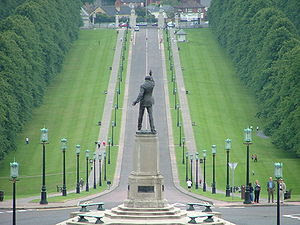Courtroom dramas, even the ones that don’t actually have a scene set in a courtroom, I just can’t resist.
But I have to admit that my real weak spot is that I’m an absolute sucker for sentimentalism. An apparently deeply unsympathetic character who suddenly breathes some noble sentiment finds a sure way to my heart, if not my tear ducts.
So Terence Rattigan’s The Winslow Boy, whether as a play or a film, is my kind of show. A fourteen-year old wrongly accused of stealing a postal order; a father prepared to court ruin to clear his name; the hard-boiled lawyer, perhaps a little taken by the boy’s radical sister, persuaded to be his advocate.
It’s that lawyer who, faced with the quandary of a subject trying to sue the Royal Navy, and therefore his monarch, turns to the archaic device of a petition of right. Whenever I hear him explain that the words on the petition read ‘let right be done’ it brings a lump to my throat.
In other words, the play has everything you could possibly want. Or at least that I could possibly want.
Curiously, however, this is a wonderful illustration of the principle that fact can be far stranger than fiction. Behind the play stands the real case of George Archer-Shee. The defence of young George, who was indeed a Cadet at the Royal Naval College at Osbourne on the Isle of Wight and expelled for stealing a postal order, was taken up by one of the great barristers of the day. His name? Edward Carson.
 |
| Martin Archer-Shee with his son George |
Now there’ll be plenty more talk of Carson at the end of this month, in Britain but above all in Northern Ireland. For the moment, let me just say that it is instructive to compare his history with that of another dominant figure in Irish politics of the time, Roger Casement. The latter took support and weapons from Germany during the first World War to arm an illegal, insurgent force of Irish Nationalists for an uprising to end British rule. He was convicted of treason and hanged.
Carson took support and weapons from Imperial Germany to arm an illegal, insurgent force of Irish loyalists, for an uprising to maintain British rule. If not in the whole of Ireland, at least in six counties of the North. His action didn’t take place in wartime which perhaps explains why he escaped the death penalty, but it might seem surprising that he wasn’t gaoled. But only until you realise that the establishment he was railing against in large part sympathised with him.
Instead, he was given a statue that stands to this day outside the parliament of Northern Ireland at Stormont. Larger than life, it’s a dominant sight, and to me at least a deeply ironic one: a legislature honouring a man to whom it owes its existence, thanks to his illegal act.
 |
| Carson: dominant as ever |
And yet it wasn’t any of this that struck me as I was reading about The Winslow Boy this weekend. No, the words that sprung off the page at me came from a Wikipedia entry on the Archer-Shee case. Talking about the boy’s father, who worked at the Bank of England, it told us that one of the reasons he campaigned so hard to clear his son was that his ‘background in bank management meant all the sons had been brought up to regard misuse of money as sinful.’
Well. These days, that’s an idea as extraordinary as Carson being honoured by the establishment for rising against it. I’d nearly forgotten that there was a time when banking was much duller than today but a lot safer and a lot straighter, making a virtue of prudence, reliability and absolute honesty.
Those were the days, weren’t they? Feel long gone now, when the likes of Bob Diamond and Fred Goodwin can find themselves heading those formerly august institutions.
Can’t imagine Terence Rattigan writing a play about one of them risking all in the pursuit of justice.
Postscript: what happened next
You might be wondering what became of the original Winslow boy afterwards.
He won his case in 1910, and his family was awarded substantial compensation. He didn’t go back to the Navy – that, as it were, was a ship that had sailed – but completed a civilian education before heading to New York to work in a Wall Street bank: yes, they too enjoyed rather more honourable reputations then than now.
But if you’ve doing any arithmetic on dates, you’ll have worked out that 1910 was a bad year to be a teenager. By August 1914, when the guns of the First World War first roared out, George Archer-Shee was nineteen and old enough to serve. He came back to join the army and lasted only a couple of months: he was killed at the first battle of Ypres in October.
He suffered injustice, but then right was done by him. And finally an irremediable wrong. All at the hands of the same establishment.
Couldn’t make it up, could you?

